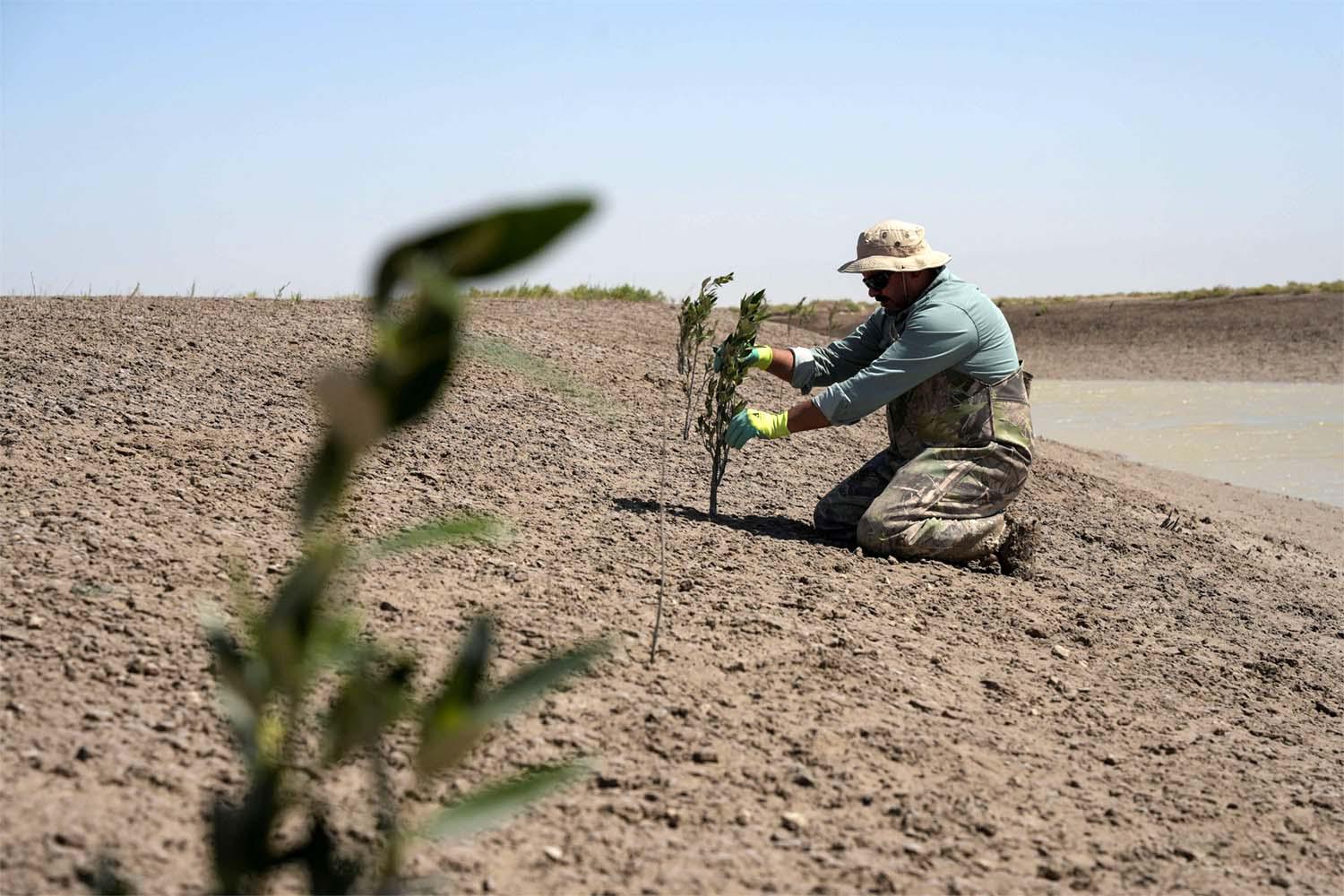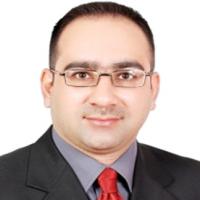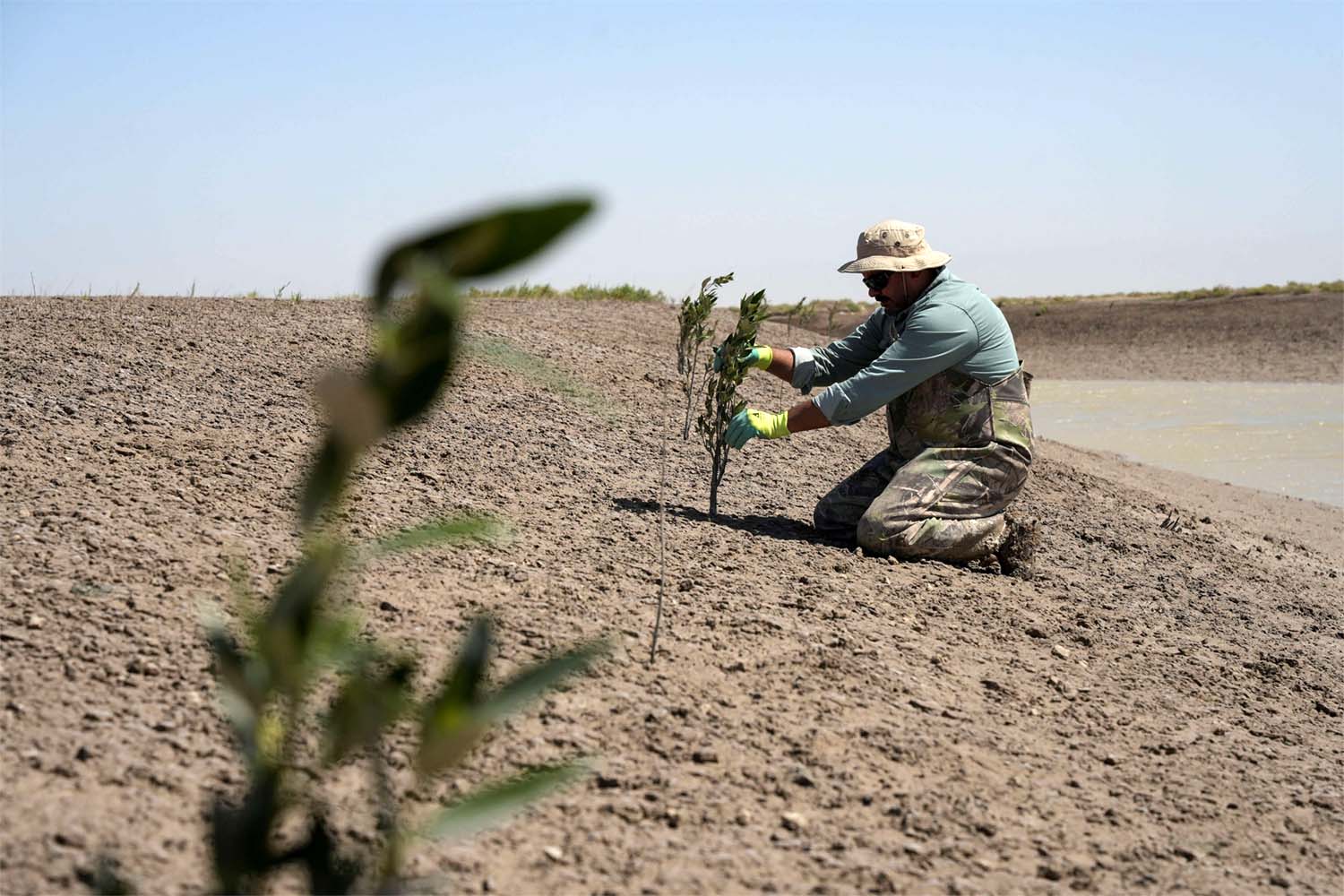The failure of Iraq’s environmental diplomacy
Iraq needs to adopt effective diplomacy in the environmental space. Instead of depending on international conferences to address their environmental problems, Iraqi decision-makers must pay more attention to local environmental policies. This approach is urgent to create a shift in the behaviour of Iraqis towards the environment and its issues. Iraqi President, Abdul Latif Rashid, should have focused on those points at the latest climate conference, Cop28, held in the UAE.
Iraq's Environmental Rhetoric
Trying to exploit the Arab Gulf awakening in the climate themes, Iraq sought to produce a discourse presenting the Gulf states as a primary actor in confronting the environmental crises in the region. In this way, Iraq wanted to confirm that its circumstances do not allow it, financially and politically, to take any step to undermine climate change. Rather, it implicitly assured that the Gulf countries must play this role.
This vision contradicts the principle many countries rely on: “participation in bearing environmental damage”. Iraq must reconstruct its environmental diplomacy to become a player and partner in regional environmental decisions.
Iraq is attempting to avoid facing the bitter reality of failure to embrace effective environmental policies. Though acknowledging the weight of the climate legacy in his country, Rashid tried to use that to make more political cooperation among regional adversaries. He thought he could submit an initiative to accelerate the Iranina-Arabian dialogue through environmental matters. But in the end, he was unable in any way to convince these parties of Iraq's ability to exercise this role.
Politically, there are many lost dreams in the context of Iraqi environmental policies. Like his predecessors, the president has many plans that cannot be easily implemented. Iraqi wishes clash with the call issued by the conference to reduce the dependence on oil and natural gas to protect the environment. The fragile Iraqi economy intersects with the idea of transitioning towards a green economy, in which the Gulf countries have made important strides.
In this forum, Iraq could not change the international forces’ convince of its environmental actions. Iraq is accused of working to restrict the role practised by non-governmental organisations concerned with climate change. It is also charged with being unable to protect the environmental activists. Additionally, it is blamed for missing the environmental cost in all its economic decisions, leaving it in a frightening isolation state. Many participants might have understood the president’s speech as an endeavour to play the role of victim for one goal only: “Getting financial suuport under the pretext of handling climate damage”
Think locally and Act internationally
The environmental problem requires unconventional solutions. One of these solutions is the possibility of investing in social media sites. This can produce environmental public opinion in areas whose residents suffer from the pressure of natural crises. Implementing these campaigns can create an environmental audience, most of whom are young. This will subsequently motivate the local community to think about how it can become a player in environmental decision-making. This could eventually put some pressure on politicians to take the citizens' environmental views into account.
Influential religious leaders, such as those in Najaf, can inspire society in southern Iraq to think carefully about environmental issues. Southern Iraq plays an important role in the problem of climate change and its environmental effects. Southern Iraq constitutes the largest part of the alluvial plain region and gives it an essential environmental identity. This alluvial plain also represents the area of Iraq's demographic and geopolitical weight. Today it is seriously threatened, as its ecological future is at stake.
Religious figures can contribute to alleviating the pessimistic future scenario. The disappointment of Iraq’s top clerics in the behaviour of political forces will create an important reason for reproducing religious discourse. In such a case, environmental priorities and societal anxieties will have a prominent role. This will also enhance environmental awareness among society in this geographical area, which is severely affected by the visions of these religious authorities. Displacement of the political controversies with environmental discussions can assemble a peaceful societal shift in the daily lifestyle of the Iraqi individual.
Recently, there has been an increase in talk about terms that the Iraqi digital space was unfamiliar with. Terms such as environmental activists, volunteer environmental teams, environmental campaigns, and green parties represent a distinguishing mark in the Iraqi context. Important scientific disciplines can greatly benefit from this matter. Geography departments, for example, have many students who can become important “field actors” in producing environmental opinions.
For this aim, every Iraqi university must renew its function to become a real social actor. Some may object to applying this idea due to difficulties facing it in the field. Here, we must remember that a thousand-mile journey begins with a single step. According to the criteria of the "Our Common Future" report, striving to produce a sustainable environment and development requires thinking outside the box.
In conclusion, international awareness of environmental problems is increasing. Moving towards less polluted economies is also growing. This will impose a gradual decline in the position of oil and oil-producing countries, including Iraq, in the global energy market. With decades of environmental neglect, Iraq will suffer widespread economic and environmental setbacks. Local conflicts would be the most expected scene in such a situation. This requires us to think about what to do before it is too late. “Tomorrow begins today” is an inspiring slogan that can prompt us to discuss the necessary steps for realising this desired change. Otherwise, the current laziness and failure will only put us in front of a frightening and inevitable future.
Diyari Salih is an Iraqi academic working at al-Mustansiriyah university. He holds a PhD in Political Geography from the University of Baghdad and a Post-Doctorate in International Relations from the University of Warsaw. His research focuses on geopolitical issues in Iraq.







